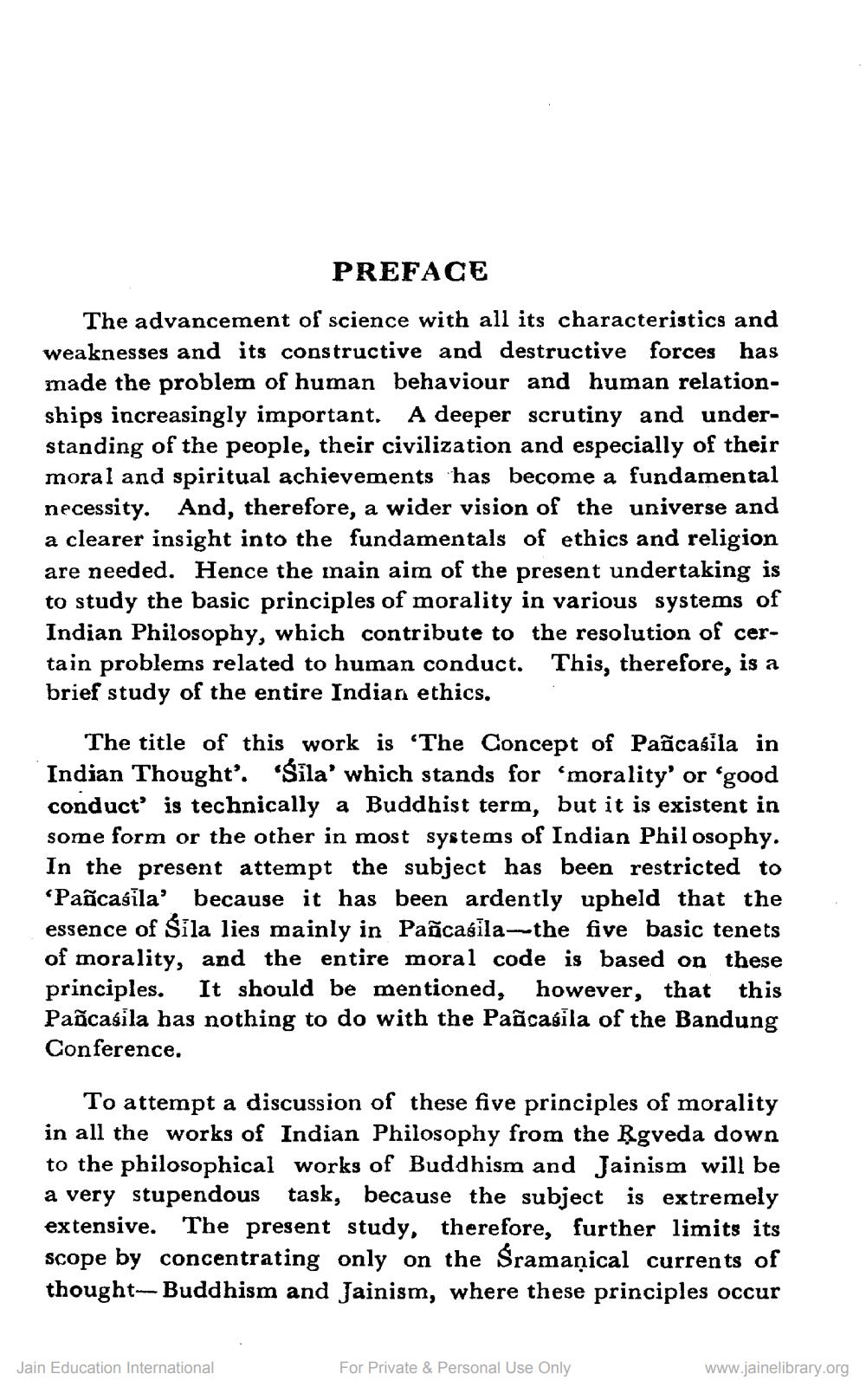________________
PREFACE
The advancement of science with all its characteristics and weaknesses and its constructive and destructive forces has made the problem of human behaviour and human relationships increasingly important. A deeper scrutiny and understanding of the people, their civilization and especially of their moral and spiritual achievements has become a fundamental necessity. And, therefore, a wider vision of the universe and a clearer insight into the fundamentals of ethics and religion are needed. Hence the main aim of the present undertaking is to study the basic principles of morality in various systems of Indian Philosophy, which contribute to the resolution of certain problems related to human conduct. This, therefore, is a brief study of the entire Indian ethics.
The title of this work is 'The Concept of Pancasila in Indian Thought'. 'Sila' which stands for 'morality' or 'good conduct' is technically a Buddhist term, but it is existent in some form or the other in most systems of Indian Philosophy. In the present attempt the subject has been restricted to 'Pancasila' because it has been ardently upheld that the essence of Sila lies mainly in Pancasila-the five basic tenets of morality, and the entire moral code is based on these principles. It should be mentioned, however, that this Pancasila has nothing to do with the Pancasila of the Bandung Conference.
To attempt a discussion of these five principles of morality in all the works of Indian Philosophy from the Ṛgveda down to the philosophical works of Buddhism and Jainism will be a very stupendous task, because the subject is extremely extensive. The present study, therefore, further limits its scope by concentrating only on the Śramanical currents of thought-Buddhism and Jainism, where these principles occur
Jain Education International
For Private & Personal Use Only
www.jainelibrary.org




